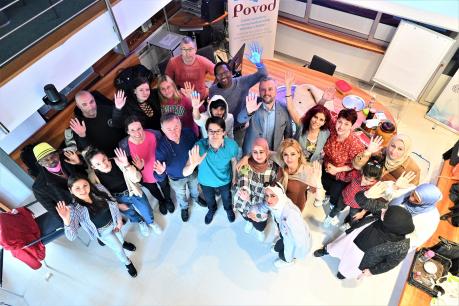How can intercultural learning contribute to sustainable living? A study case in Ljubljana, Slovenia

Several pieces of research highlight the importance of culture as a driver of sustainable development. Yet, there is a need for participatory research as empirical evidence on how intercultural learning enabled by migration contributes to Sustainable Development. This case study starts by accumulating a theoretical framework that highlights crossing points where intercultural learning contributes to achieving the Sustainable Development Goals, SDGs of Agenda 2030. Later on, this framework is tested and validated through intercultural focus groups as a method for participatory research. This participatory process consisted of a series of focus groups that gathered 11 individuals coming from various geographical locations mainly in the Mediterranean region and currently living in Slovenia in the city of Ljubljana. The findings implicate that intercultural learning, enabled by migration, is a vital tool for achieving zero hunger, food security, zero waste, responsible consumption and production and energy efficiency, as well as for reducing inequalities and eliminating ethnic-based and gender-based discrimination. The study has its limitations because the topics are vast, the participants and the desk research could not cover all the issues that fall under the themes of interculturalism and sustainable development, and it does not thoroughly test the solutions provided by the participants. Yet, this case study is essential as a base to build on; therefore, it is a critical study to inspire further participatory researchers to investigate, test and document the valuable solutions for sustainable development by intercultural learning and exchanges enabled by migration.